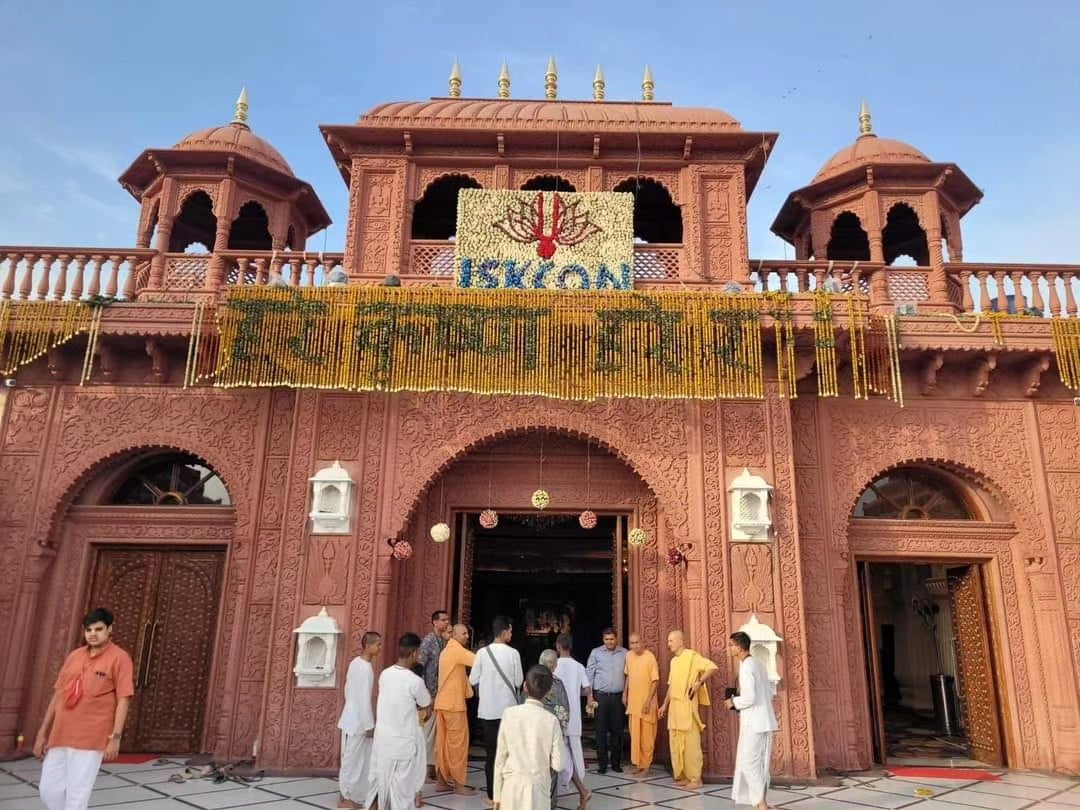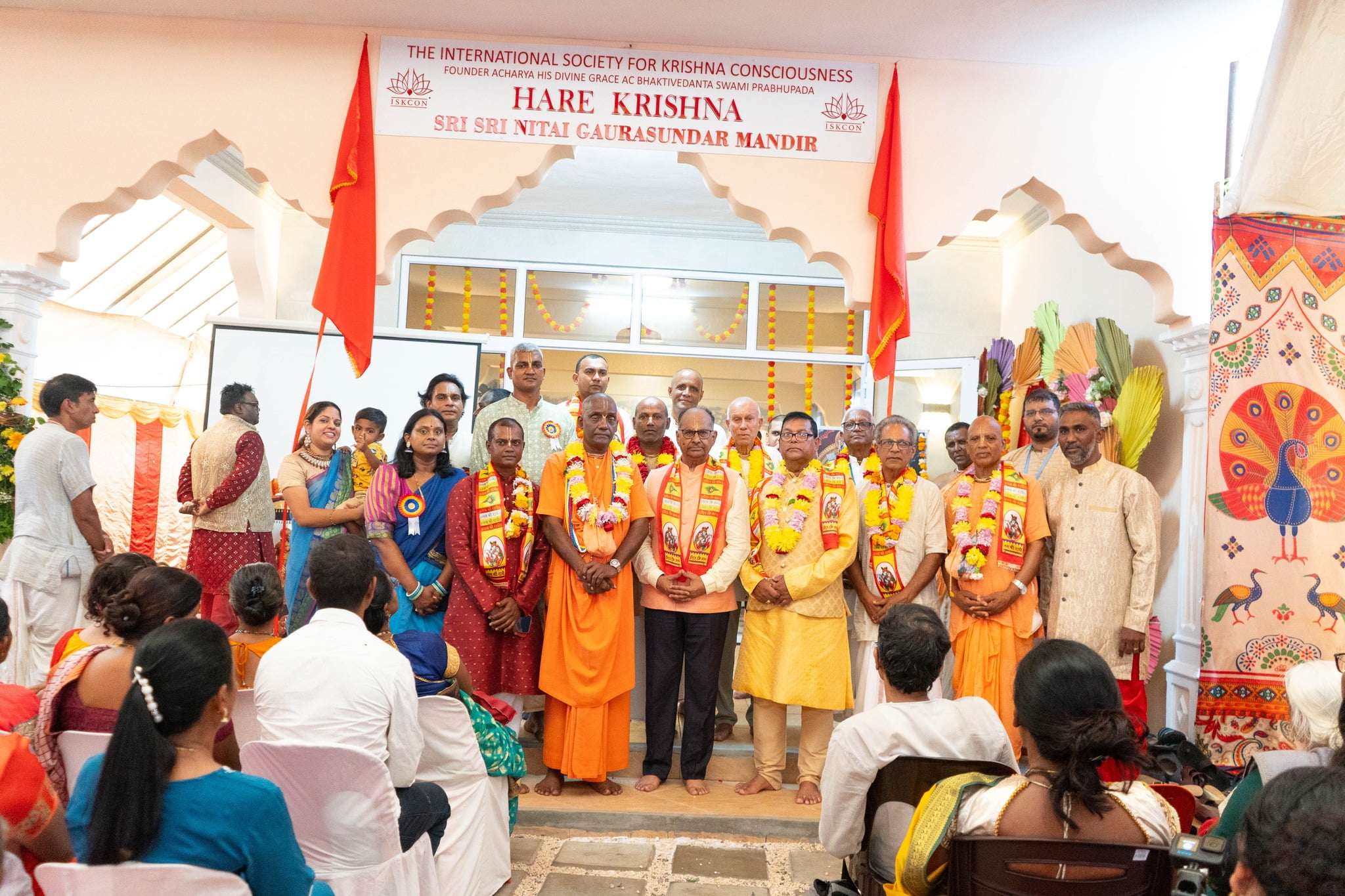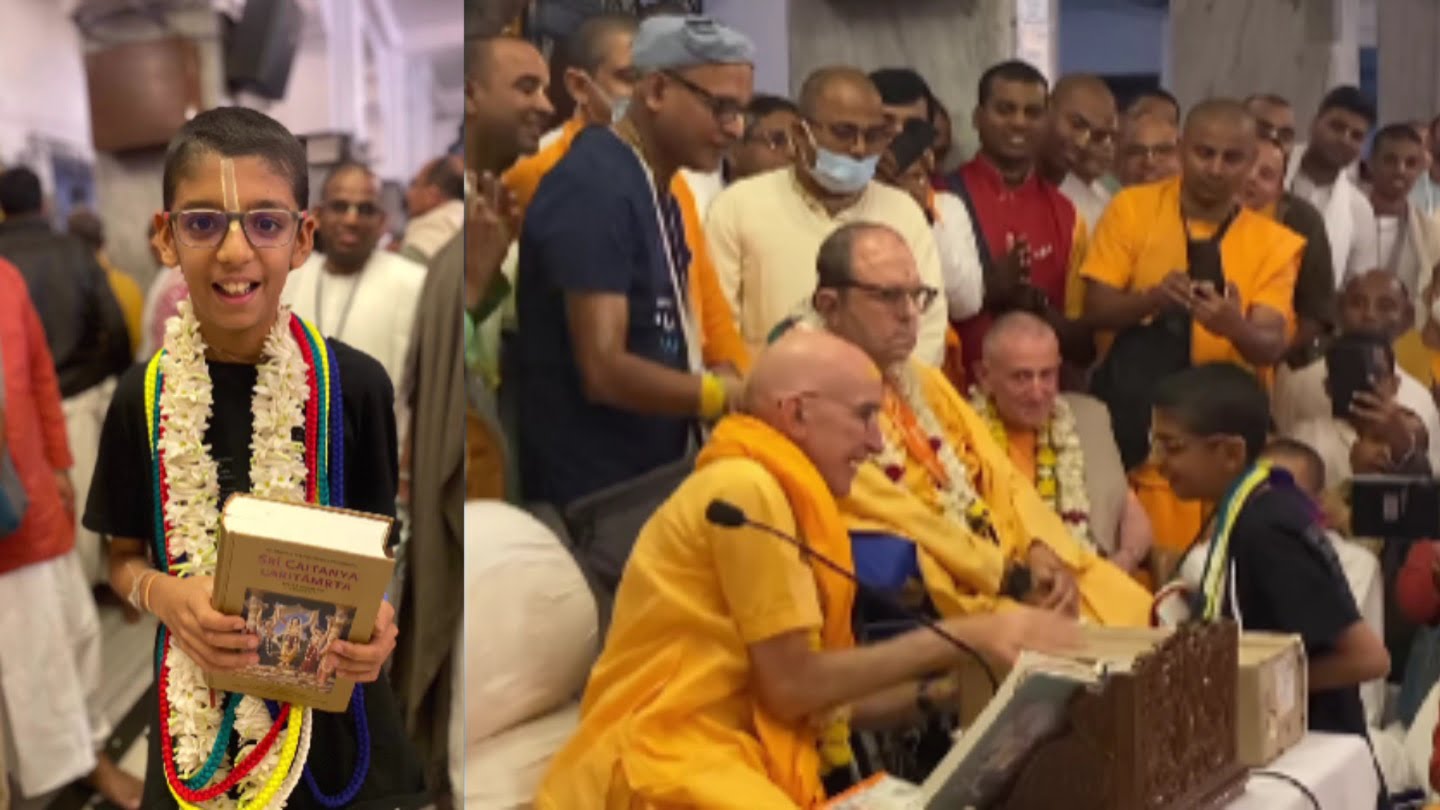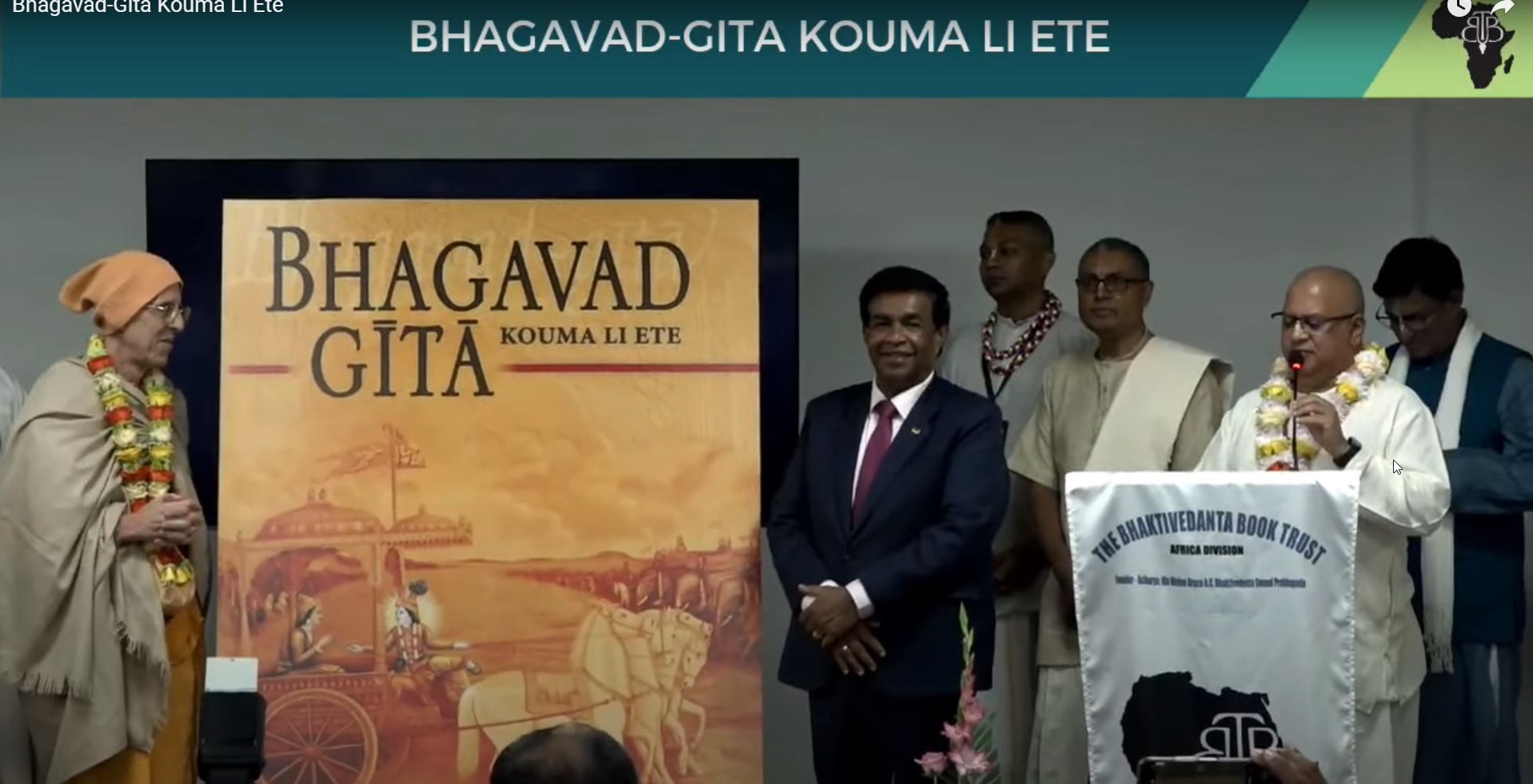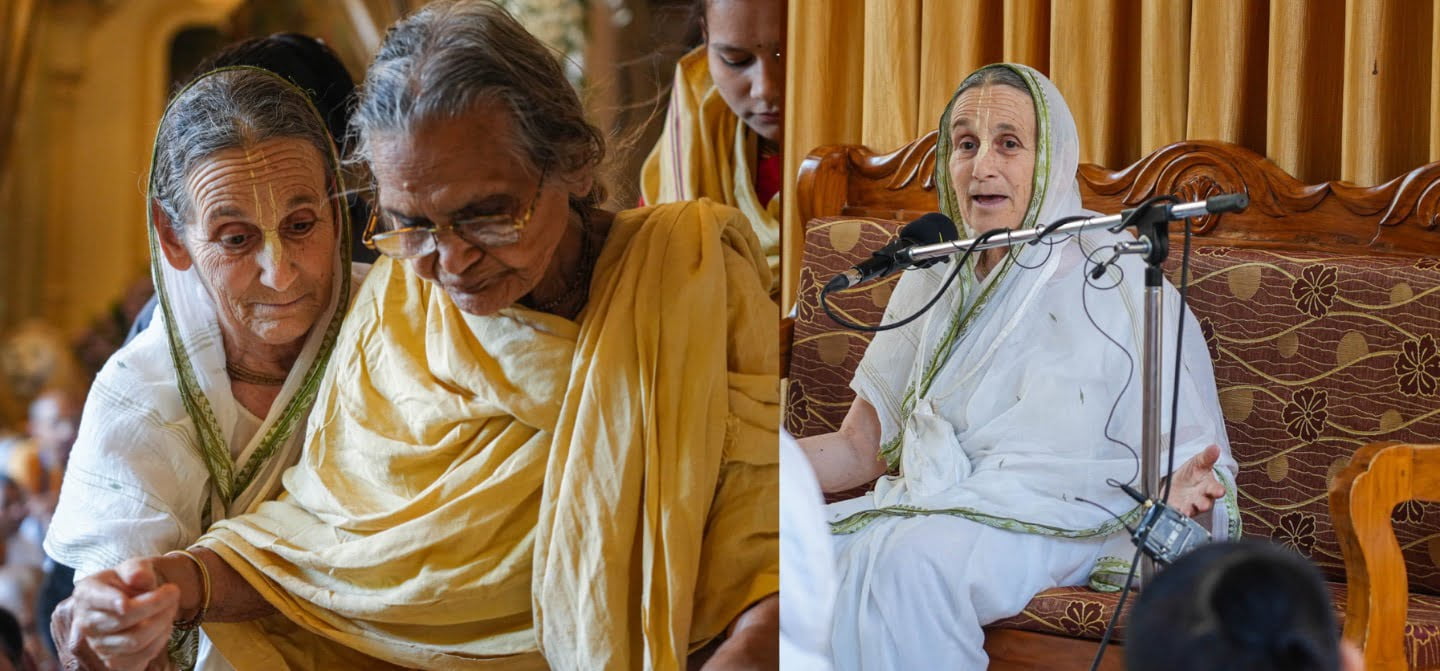Truth of Fiction – An Exploration
By Nimai Charan Agarwal | Jan 15, 2011

I am a twelve-year old homeschooled aspiring devotee and writer. My parents are initiated disciples and live near the Potomac temple in Maryland. I have a fascination for fiction books, and even more for spirituality, so in this article I try to reconcile the two and show how spirituality has breached the walls of books and entertainment.
I sat, intently reading. I traveled through mountains and valleys and prisons and forests. And then– I started reading about a world where a language of absoluteness resided. Where a tongue that not only described the object, but embodied the object. In this way it is completely absolute. “Brisngr” speaks the man. A fire erupts from his palm. It is called the Ancient language, and is the language of magic. I sat there, my mouth gawking, and my mind racing. It had to be from the Bhagavatam. Was it not stated in the scriptures that there is no difference between Krishna’s name and Krishna himself? That the maha-mantra is absolute and embodies the experience of the Supreme? Where else could this come from? I turned over the book to the colorful cover. “The Inheritance cycle.” I was surprised. Vedic ideas and literature were no more confined to philosophical and slightly perilous books for adults, they were making a place for themselves even in popular bestselling books for teenagers.
The Inheritance cycle was an interesting series for me. It was not so because of the sophisticated vocabulary of the author, not because the writer was a fifteen year old home-schooler, and not because of the solid, and fascinating plot. The story brought new meaning to me, as its avid reader, because of its parallels to our Vedic philosophy.
It has always bothered me about that most books for children expound and even glorify eating animals. It is simply accepted. Eragon was one of the few children books in which vegetarianism was logically explained. Christopher Paolini, the mastermind, explains that all creatures have consciousness and think. Eragon, our hero, is able to sense consciousness using his magic. As he delves deeper in a state of meditation he sees that animals have intelligence and consciousness. After fully experiencing the consciousness of animals he is disgusted with the idea of eating animals as food.
Fantasy is a medium that can let the imagination flow. One can create and change different creatures and make one’s own world. But even fantasy must have a strong grounding in reality. And what better reality to use but the truths of the scriptures!
Elves. What comes to mind to mind when we think of elves? Pointy eared and sharp nosed little midgets sporting green clothes with red trimmings while helping Santa Claus do his chores at Toys ‘r Us? Not according to the author of the Inheritance cycle. For him it is something more along the lines of exotic super humans. The elves are magical creatures who live in a heavenly environment. They have long lives and speak in the ancient language– the language of magic. Not your average Santa’s little helper, huh? It rang a bell in my mind. Immortal, they speak in an ancient language, they reside in a paradise, they have great power, beauty and opulence… The demigods. Gandharvas. It had to be something like that. Elves are a subject that have been beaten to death in most children books. So, while we’re at it–writing about elves again– why not use their definition from the scriptures themselves? Clever idea Mr. Paolini. I completely agree with you.
These similarities continue to stun me as I read more recent books: Karma, reincarnation, yoga , chakras, parampara. The list is long. We can see how vedic concepts have found their place in modern literature. Movies and TV shows are no exception.
Avatar the Last Airbender, an asian based animation by one of America’s top animation company presented a three book series of adventure and fantasy. The spirituality was none too diluted.
What does the title “Avatar the last Airbender” mean? Does the word Avatar, a Sankrit words, have any relevance or is it just a throw away word? In our Vedic philosophy, avatar is a word used to describe the advent of someone, specifically Lord Vishnu. The directors of the show don’t mention Lord Vishnu, but they get pretty close. “The spirit of the Avatar reincarnates itself in every age to give balance and peace to the world,” according to the animation series. The Avatar can also commune with the spirit world, which is very similar to Vaikuntha. It has valleys and forests, and lakes, and spiritual creatures, all glistening with beauty power. Avatar. They got it. Our hero whose name is Aang lives in a monastery setting. He is a bald boy who wears saffron robes and has tattoos all over his body– one on his forehead, a few on his arms, and one on his back. The marks have the shape of arrows or… Tilak?
The story goes on to describe how Avatars have special dormant powers and by realizing those powers one can become enlightened. Aang finally goes to the mountains to meditate with an Indian yogi to learn how to release his dormant power. The Swami talks about how the only way to release the Avatar’s dormant power is to give up his connection to this material world. He must reject what is most dear to him and what binds him to worldly matters.
You may be asking, “Are you sure that the author of the Inheritance cycle and Avatar: the Last Air-bender’s director might have read the Bhagavatam?” To be honest, I don’t know. I’ll have to leave you on a cliff-hanger.




